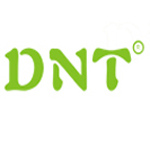The Impacts Of ‘Dramatic Changes’ To Vehicle Mix
Over 10 years from 2012-2022, the vehicle in operation (VIO) mix has seen dramatic changes, particularly between domestic and foreign nameplates and between cars and light trucks, in the United States.
"Dramatic changes in the mix of vehicles in operation over the past ten years have created significant consequences for the aftermarket and will continue to shape many aspects of product volume for years," the group said in its report, Big Shift in Vehicle Mix Reshapes Aftermarket
In 2012, cars, encompassing both domestic and foreign nameplates, made up 47 per cent of the VIO. However, by 2022, this figure dropped below 40 per cent, indicating a marked decrease in car popularity compared to light trucks. The shift is more pronounced when comparing domestic versus foreign nameplates, Lang found. Domestic vehicles, which once dominated the roads with a 61 per cent share in mid-2012, have declined to just above 50 per cent by 2022, while foreign nameplates have seen a corresponding rise.
This transition has not been uniform across all vehicle types either. The number of domestic nameplate cars has seen a significant decline, dropping by more than 9 million units in the last decade, leading to their share reducing from 23 per cent in 2012 to just 13 per cent in 2022. On the flip side, foreign nameplate cars have increased in number and market share, although the most substantial growth has been seen in foreign nameplate light trucks, which have shown the most significant gain in both number and VIO share.
These changes in vehicle ownership have far-reaching consequences for the automotive aftermarket, Lang outlined. The decline in domestic nameplate cars and the rise of foreign nameplate vehicles, particularly light trucks, are changing the demand dynamics for aftermarket products. This shift not only affects the volume and types of aftermarket products required but also influences the brands that consumers prefer.
Additionally, the evolving vehicle mix impacts the distribution of aftermarket products. Different vehicle types and nameplates often require distinct aftermarket items, leading to changes in product distribution channels. The shift also has implications for repair outlets, as the demand for do-it-for-me (DIFM) services adjusts with the changing vehicle landscape. Moreover, the trend influences DIY retail outlets, as vehicle owners' needs and preferences evolve.
"Lang Marketing expects the country's vehicle mix will continue to shift, with light trucks and foreign nameplates expanding their VIO share over the next five years," it stated.








